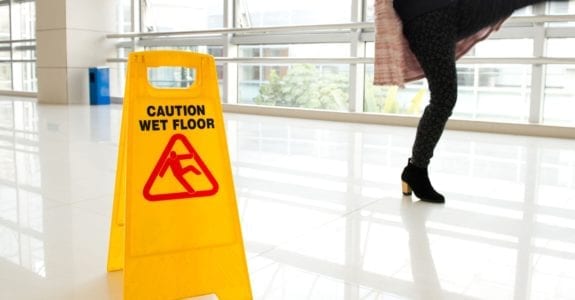
Protect your business’ financial well-being from liability risks.
Request a quoteCommercial General Liability (CGL) Safeguards Your Business, Keeps Your Operation Humming
Commercial General Liability (CGL) insurance is the foundation of a business’ insurance portfolio. Whether you have a small business, a mid-size operation or a corporation with multiple locations, a CGL policy is needed to protect your financial integrity. It provides coverage for property damage or bodily injury caused by the business’ operations or products with the exception of Professional, Pollution, Worker’s Compensation, Employers and other liability issues. The three main components to a commercial general liability policy are bodily injury (BI), property damage (PD), and personal or advertising injury (PI).
What’s Covered Under Bodily Injury Liability
The bodily injury component of the CGL policy provides compensation for injuries to an individual that occurred on the business’ property or as a result of your business operations. This could involve a customer, tenant, or passerby – any individual other than your employees (employees are covered under workers comp for on-the-job injuries). The CGL policy is typically among the first insurance policies small business owners buy because they often need it to sign commercial leases and client contracts.
The CGL at Work
Let’s take a look at an example of how the CGL policy would respond. A customer slips on a wet floor while shopping and fractures several bones in their arm and leg. Your CGL policy will cover the customer’s medical expenses such as doctor visits, surgery, hospital stays, medication, and follow-up visits as well as compensate the injured party for any wages missed as a result of the injury. Bodily injury coverage also covers mental and emotional distress. Most lawsuits are avoided with sufficient bodily injury coverage, but if a third party sues a business, Commercial General Liability insurance will cover the defense fees, court costs, and settlement damages, up to the policy limits. This is particularly relevant in cases involving significant bodily injury or death.
What’s Covered Under Property Damage Liability
Property damage provides coverage and compensation for damage to tangible property, including all resulting loss of use of that property. For example, let’s say a contractor is working on a home renovation, and accidentally causes significant damage to a wall, leaving a room exposed to the outdoors and the house temporarily unlivable. The homeowner sues for $175,000 to cover the cost of repair to the wall and temporary housing. The property damage would be covered with Commercial General Liability insurance. Depending on the state in which you live, stolen property from an individual while on your business’ premises can also be considered property damage.
What’s Covered Under Personal and Advertising Injury
Personal injury (PI) means damage to a person’s character, reputation, or status. Advertising damages such as use of another’s creative ideas, infringing on another’s copyright, slogan or logo may also be covered in this area of a CGL policy. A common example is that you start a promotion for an area of your business. Your marketing team decides on a catchy slogan and you kick off the campaign using the new slogan. Two months later you get a cease and desist letter along with court papers. It turns out that a sole proprietor copyrighted the catchy slogan for a totally different business and sues you for $100,000 for copyright infringement. The CGL will step in and help pay for the costs associated. These policies DO NOT cover copyright infringement due to the reproduction of someone else’s material without their consent.
How Much Business Liability Coverage Do You Need?
The amount of Commercial General Liability insurance you purchase will depend on your operation, exposures and financial assets at risk, including the following factors:
• The type of business you have
• The size of your business
• Who your customers are
• Your business location
• Number of employees
Beyond Commercial General Liability Insurance
There are also additional coverages you can add to the CGL policy, depending on your operation and exposures. This includes policy enhancements to protect against claims of liquor liability, employment practices, cyber attacks and other exposures. In addition, Commercial Umbrella insurance is a wise investment, as it extends the underlying coverage you have with a Commercial General Liability policy and other liability policies (Commercial Auto, D&O). If you have limits of $1 million under the CGL and purchase a $3 million Umbrella policy, you would have a total of $4 million in liability coverage, which would help address catastrophic liability losses.
We will go over all of this with you in greater detail to determine the amount and extent of coverage you need to fit your business’ risk profile.

